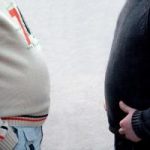Eating Disorders
Articles, Videos and treatment options for Eating Disorders
The term “eating disorder” encompasses a wide variety of abnormal behaviors that can present in a number of clinical pictures. One of the most basic ways to define “eating disorder” is as a cluster of abnormal eating habits associated with deranged thoughts or negative feelings. To define “eating disorder” adequately both psychological and clinical symptoms must be addressed.
Our overview of eating disorders can be found here. For the latest content, scroll down and select from the list.

Many factors can contribute to the onset of an eating disorder such as anorexia nervosa, bulimia nervosa, or binge-eating disorder. In general, the exact cause of developing one of these disorders is unknown as there are quite a few forces at play, any one or combination of which can lead to disordered eating behaviors. Listed …
Read More

Of all the eating disorders that exist, none are more known than anorexia nervosa and bulimia nervosa. But what is the difference between these two eating disorders? How are they alike and how are they different? How can you identify bulimia vs. anorexia? Eating Disorders are diagnosed using the criteria put forth in the Diagnostic …
Read More

The average young woman’s perception of her body is “fat.” Studies indicate many people, especially women, measure their self worth based on appearance. The global influence of Western media puts tremendous pressure on both men and women to look good and fit an “ideal,” difficult-to-attain figure. It doesn’t make things easier that the most sought-after …
Read More

Individuals with bipolar disorder appear to be more likely than others to develop an eating disorder. Approximately 5.7 million American adults have bipolar disorder, a mental illness characterized by frequently changing moods that alternate between manic “highs” and depressive “lows.” Eating disorders affect about 4 percent of the population, according to the National Institute of …
Read More

Many people associate eating disorders with underweight, teenage girls who have negative body images. However, not everyone with an eating disorder is skinny, and many of them don’t even think about their weight or appearance! Binge-eating disorder is very common in young girls and women, yet few people talk about it. Binge-eaters are at a …
Read More

The fact that celebrities are now willing to step forward and share their experiences with eating disorders is a testament to progress in the medical field. Recognition that anorexia, bulimia and binge eating are real medical conditions have taken away some of the shame and stigma that otherwise keep such conditions secret. Here is a …
Read More

Our relationship with food is remarkably complex. On the one hand, food supplies our bodies with nutrition which is a basic need. On the other hand, our connection to food goes considerably deeper, providing comfort during stressful times, and evoking memories of family traditions. As infants, we learn to associate nourishment with love and security. …
Read More

Obesity in the US is a significant problem, and appears to be increasing. It is estimated that over 60 million adults and 9 million children are considered to be obese in the US today. Obesity can be caused a number of different conditions, but is most likely to be the result of taking in more …
Read More

Obesity in teens has increased dramatically over the past 40 years. Just as the incidence of obesity in adults has increased, obesity in teens now affects anywhere between 16 and 33% of teens. Obesity in teens and children is defined a little differently than in adults. Obesity in teens is defined as having a body …
Read More

Obesity refers to an excess of body fat, putting affected individuals at risk for chronic illnesses such as type 2 diabetes, hypertension, heart disease, stroke, and certain types of cancer. In America, one quarter of all adults are obese. Women generally have more body fat than men, so are allowed a greater percentage of body …
Read More
 Eating Disorder Self Test. Take the EAT-26 self test to see if you might have eating disorder symptoms that might require professional evaluation. All answers are confidential.
Eating Disorder Self Test. Take the EAT-26 self test to see if you might have eating disorder symptoms that might require professional evaluation. All answers are confidential.
Find a Treatment Facility Near You
Click on a state below to find eating disorder treatment options that could be right for you.










 Eating Disorder Self Test. Take the EAT-26 self test to see if you might have eating disorder symptoms that might require professional evaluation. All answers are confidential.
Eating Disorder Self Test. Take the EAT-26 self test to see if you might have eating disorder symptoms that might require professional evaluation. All answers are confidential.